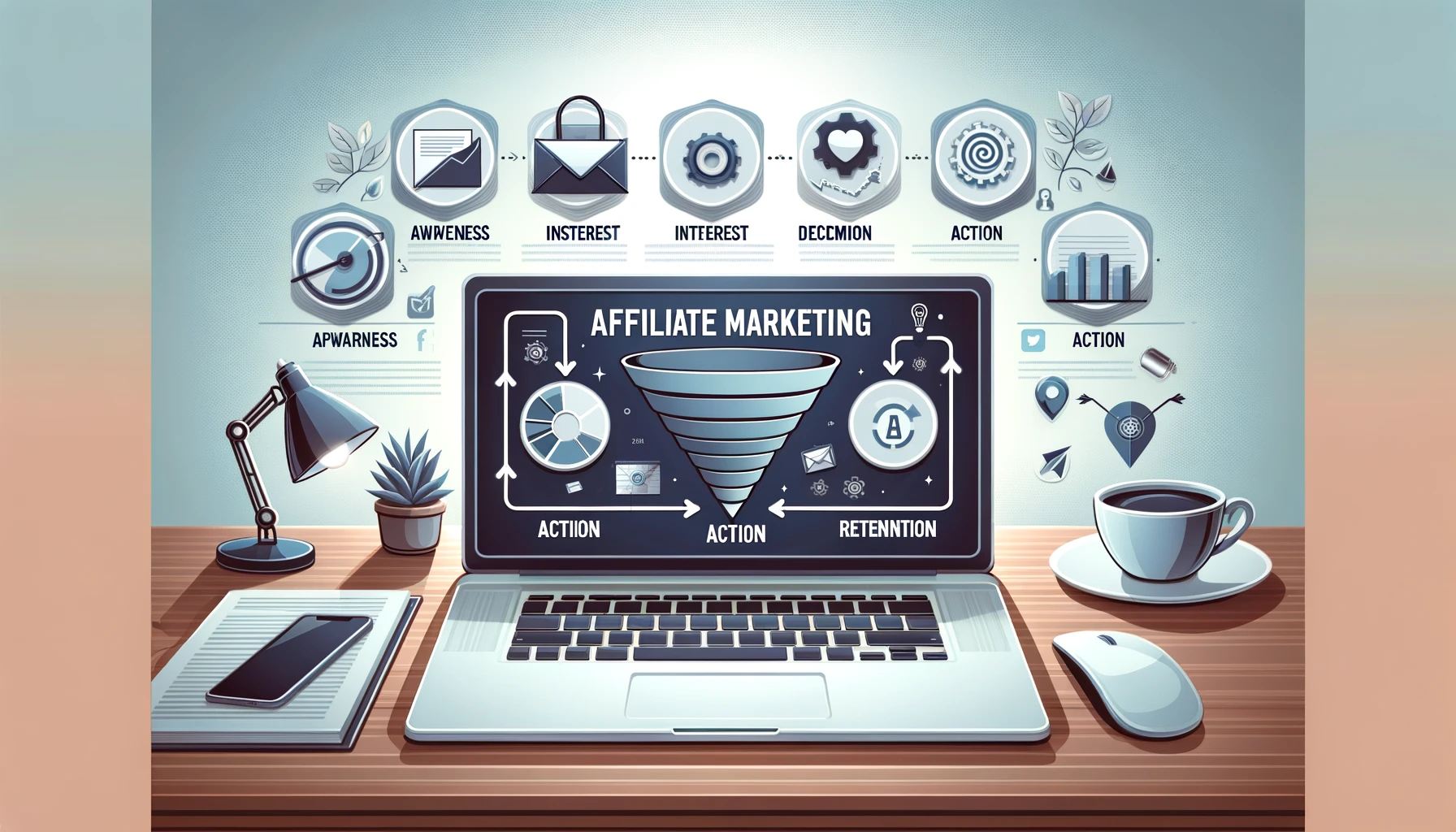The End of the Traditional Customer Funnel: What It Means for Affiliate Marketers

For years, digital marketers have relied on the “customer funnel”—the well-trodden path from awareness to purchase—as a key model for understanding consumer behaviour. The funnel assumes that a potential customer moves in a linear fashion, starting with awareness, progressing through consideration, and ending with a purchase.
But in 2024, this traditional model is being turned on its head. The funnel is evolving into something far more complex, shaped by the overlapping roles that different digital players, particularly affiliates, are playing along the buyer journey.
In this blog post, we’ll explore how the customer journey has changed, what it means for affiliate marketers, and how to navigate this new landscape to remain competitive and effective.
The Demise of the Traditional Funnel
In today’s digital world, customers don’t move in a straight line. They may discover a product through an Instagram influencer, read reviews on a coupon site, compare prices via Google Shopping, and then make a purchase using an affiliate link from a blog they trust. This complexity is rendering the traditional customer funnel inadequate. Instead, we are seeing a more dynamic, cyclical journey where customers interact with brands in non-linear ways.
As Tricia Meyer, an affiliate marketing expert, noted, “The roles that different publishers play in the funnel are starting to overlap. Influencers are promoting coupons, and coupon sites are influencing buying decisions, which blurs the lines between stages in the funnel.”
This shift means that affiliates and marketers must adjust their strategies to meet consumers wherever they are, regardless of which part of the journey they might be in.
Why This Matters for Affiliate Marketers
For affiliates, the evolution of the customer funnel represents both a challenge and an opportunity. Affiliates no longer serve merely as the final click that drives a purchase. Instead, they are becoming part of a more complex ecosystem that spans multiple stages of the customer journey. Here’s why this is important:
- Attribution Is More Complex: With customers interacting with multiple touchpoints before making a purchase, attribution—knowing which channel or action led to the sale—has become more challenging. Traditionally, affiliates have been rewarded for the last click before a purchase. However, with so many players contributing value throughout the journey, the focus is shifting to multi-touch attribution models that reward each contributor fairly. Affiliates need to ensure they are capturing their role in the customer journey, even if they are not the final point of contact.
- Affiliate Roles Are Expanding: Affiliates can now influence consumers at multiple stages of the buyer journey, not just at the point of sale. From product awareness through influencer marketing to product comparisons on content websites, affiliates are playing a bigger role in shaping customer decisions. As a result, affiliate marketers can diversify their strategies, targeting different parts of the journey rather than focusing solely on driving conversions.
- Content Creation Becomes Key: As the funnel evolves, the type of content affiliates create must also change. Educational content, in-depth product reviews, tutorials, and even onboarding videos are becoming increasingly valuable as they address the needs of consumers at various stages of their journey. By creating content that resonates with consumers beyond just driving sales, affiliates can position themselves as trusted sources of information, thereby fostering long-term relationships with their audience.
How Affiliates Can Adapt to the New Funnel
To thrive in this changing landscape, affiliates must adopt new strategies that reflect the complexity of the modern buyer journey. Here are a few ways they can do this:
- Invest in Tracking and Analytics: Affiliates must have robust tracking tools in place to accurately measure their contribution to the customer journey. Multi-touch attribution models are becoming more common, and affiliates need to ensure they are being credited for their efforts, even if they’re not the final click before the sale.
- Focus on Value at Every Stage: Affiliates should aim to add value at different stages of the funnel, from awareness to post-purchase. This could involve creating engaging content for social media, producing detailed product reviews, or offering post-purchase support and tutorials. By providing value at every stage, affiliates can stay relevant throughout the entire customer journey.
- Collaborate with Other Players: Affiliates can work more closely with brands and other marketing partners to create a more seamless experience for consumers. For example, coupon sites can collaborate with influencers to reach more consumers at the awareness stage, while content creators can partner with e-commerce platforms to drive conversions at the decision stage.
- Leverage New Channels: With the rise of multi-channel marketing, affiliates should embrace a cross-channel approach, utilising platforms such as YouTube, TikTok, podcasts, and blogs to reach consumers at different points in their journey. By being present across various channels, affiliates can ensure they’re top-of-mind when consumers are ready to make a purchase.
Conclusion
The traditional customer funnel is being replaced by a more fluid and complex buyer journey, where consumers engage with brands across multiple channels and touchpoints. For affiliate marketers, this presents a unique opportunity to influence consumers at various stages of the process, not just at the final point of sale.
To succeed in this new landscape, affiliates must adapt by creating valuable content, investing in tracking tools, and embracing multi-channel strategies. By doing so, they can not only continue to drive conversions but also build stronger relationships with their audiences, ensuring long-term success in an ever-evolving digital marketplace.






